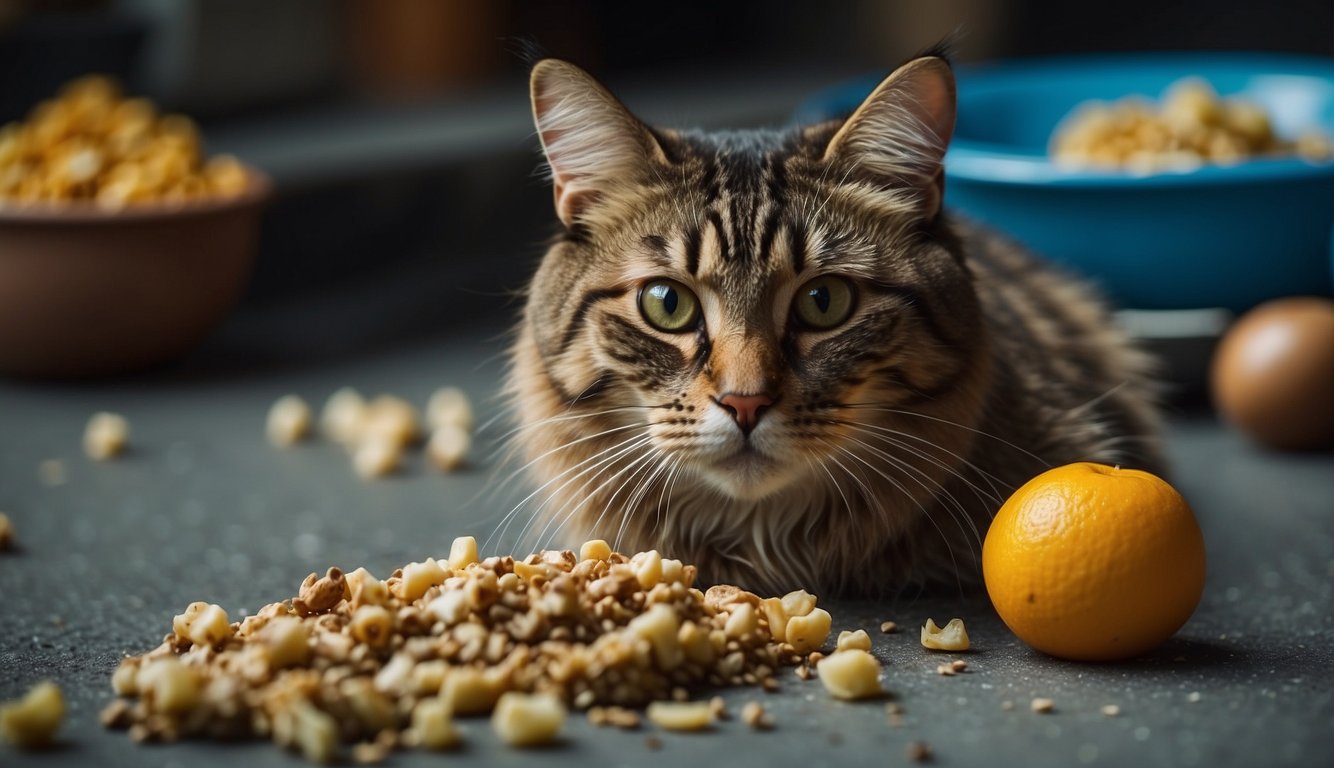There’s no need to worry; you’re not alone! Many cat owners have experienced the frustration of finding kibble on the floor or wet food splattered on the walls. In this, we will search for practical tips to help you understand why your cat may be throwing their food and how to address this behavior effectively.
Understanding Why Your Cat is Throwing Their Food
One common explanation is that your cat may try to play or hunt their food before eating it. Some cats prefer certain textures or flavors, and if they are dissatisfied with their meal, they might express their displeasure by tossing it aside. , stress or anxiety can manifest in unusual behaviors like food throwing. Observing your cat’s body language and overall demeanor during mealtimes is essential to understand why they might engage in this behavior. By understanding the underlying cause of your cat’s food-throwing antics, you can take proactive steps to address the issue effectively.
Possible Health Issues That May Cause Food Throwing
If your cat consistently throws their food, it could indicate an underlying health issue that needs attention. Possible reasons for this behavior include dental problems such as tooth decay or gum disease, which may make chewing painful for your feline friend. Digestive issues like gastritis or inflammatory bowel disease could also be culprits, causing discomfort after eating. Food allergies or sensitivities can lead to nausea and vomiting in cats, resulting in them rejecting their meals. In some cases, kidney disease or other organ issues may affect their appetite and digestion, leading to food aversion and throwing up. It’s essential to monitor your cat’s eating habits closely and consult a veterinarian if you suspect any health concerns contributing to the food-throwing behavior. Regular check-ups and appropriate medical treatment can help address these underlying issues effectively.
How to Address Behavioral Causes of Food Throwing
One common reason behind this behavior is stress or anxiety, which may manifest during feeding time. Cats are sensitive creatures, and changes in their environment or routine can trigger them to act out by tossing their food around. To help alleviate this issue, creating a calm and comfortable feeding space for your feline friend is essential. Try placing their food bowl in a quiet area away from loud noises or high-traffic areas. Establishing a consistent feeding schedule can provide your cat with a sense of security and stability. Another strategy is introducing interactive feeders or puzzle toys that encourage mental stimulation during mealtime. This helps prevent boredom and redirects your cat’s focus towards problem-solving rather than food tossing.
Tips for Minimizing Mess and Wasted Food
Try some simple tips to minimize the mess and waste.
First off, consider using a shallow dish or tray for feeding your furry friend. This can help prevent them from pawing and scattering their food everywhere. Another trick is opting for heavier bowls that are less likely to tip over easily. Stainless steel or ceramic bowls could be suitable options. Try placing a mat under your cat’s feeding area. Any spilled kibble can quickly be scooped back into the dish without creating too much mess. If your cat has a habit of playing with their food before eating it, consider interactive feeders or puzzle toys that can make mealtime more engaging and prevent excessive food tossing. By implementing these simple strategies, you may spend less time cleaning up after your kitty and more time enjoying their company!
Special Considerations for Kittens and Senior Cats
Kittens and senior cats who throw food need to be treated differently when it comes to food throwing. Kittens may throw their food out of curiosity or playfulness, while geriatric cats may exhibit this behavior due to dental issues or decreased appetite. For kittens, ensure they have access to appropriate toys and stimulation to prevent boredom that could lead them to play with their food instead of eating it. , consider feeding them smaller, more frequent meals to avoid overeating. Senior cats may require softer or wetter foods that are easier to chew and digest. It’s essential to closely monitor their weight and appetite as they age, as changes in these areas could indicate underlying health issues contributing to food-throwing behavior. Consulting with a veterinarian is crucial for both kittens and senior cats exhibiting consistent food-throwing behavior, as it could mean an underlying medical issue that needs attention.
A professional’s help when needed
If you have tried various strategies and your cat is still throwing their food, it may be time to seek the help of a professional. Your veterinarian can help rule out any underlying health issues causing this behavior. A veterinary behaviorist can also provide expert guidance on addressing any behavioral causes contributing to the problem. It’s important to remember that each cat is unique, and what works for one may not work for another. By understanding why your cat is throwing their food, addressing possible health issues and behavioral causes, implementing practical tips for minimizing messes, and considering special considerations for kittens and senior cats – you are well on your way to finding a solution that works best for your feline friend. With patience, consistency, and some professional guidance, you can help your cat enjoy mealtime without the added drama of food throwing.




